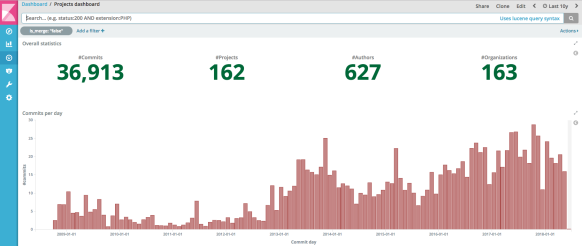
Good news for all the people that wanted to use Gerrit Code Review on top of their GitHub repositories, but so far have been concerned about sharing their profile information: you can now keep your details private and still review other people’s changes on Gerrit.
If you are an EU citizen, you have rights guaranteed by the GDPR and the default role for accessing your GitHub OAuth scope can now be limited to what is the bare minimum.
The default scope explained
When signing up with GerritHub.io, you have the ability to define the scope of access to your personal information held on GitHub:
- Your e-mail
- Your membership to organizations and teams
- Your repositories
The default access requested for doing some activity on Gerrit is: user:email + public:repo + read:org, that allows Gerrit to see your e-mail, clone and push on your behalf to your public repositories and see the list of your teams and organizations. Those permissions are needed when you want to push some code to GerritHub.io, and thus you need to allow Gerrit to resolve your groups (Organizations/Teams) and grant you permissions to push your code to Gerrit and eventually GitHub as well on your behalf.
The problem with GDPR
The default role may not fit with some of the conditions of GDPR for EU where you are not willing to contribute any code but participate in the review of existing changes. That’s why GerritHub.io introduced a new GitHub scope page that allows external reviewers to sign-up with the bare minimum information that Gerrit needs to let you in: your e-mail address.
Why can’t I stay anonymous on Gerrit?
Even though you could create a GitHub account without exposing any private information or exposing your e-mail, you cannot sign-up with Gerrit Code Review if you are not willing to share who you are.
The e-mail address in Gerrit is a crucial property, and without it, some parts of the code-review workflow would stop working. That condition of Gerrit is so pervasive in the architecture because of the requirements of the Android OpenSource Project (code-named AOSP) which is the project historically hosted on the platform: the . See the details of the Android contribution license and process at https://source.android.com/setup/start/licenses.
What if I still want to stay completely anonymous on Gerrit Code Review?
Gerrit has the concept of the “Anonymous Coward” (not an offense, just the default name assigned to it), which is an account that has only an ID without either a full name or an e-mail address. With the anonymous user, however, you cannot review code, for obvious legal reasons and for preventing spamming and abuse.
I am in doubt on what to chose, where to start from?
If you are concerned about sharing your Personal Information and you need to decide which level to use, then just chose “Reviewer” and you can amend your choice and extend your scope at any time later.

